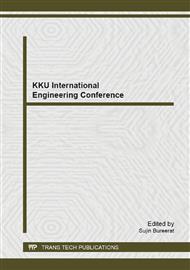p.1348
p.1353
p.1360
p.1365
p.1370
p.1375
p.1382
p.1387
p.1392
Departure Prediction of Online Game Players
Abstract:
Most business models of online game companies usually depend on sale of virtual items and the monthly subscription fees. The prediction of player departure could increase revenues by giving special promotions out to the players who are expected to unsubscribe or quit playing the game. This paper proposes a departure prediction approach by using a new feature called SLKdays and a game revisitation. The feature "SLKdays" is defined as "Staytime", which is the time each player spending in an online game, of the last k days, and a game revisitation is the playing frequency in the last month to predict the next month subscription. We explore our new feature "SLKdays" to determine the optimal number of k for the departure prediction. With our proposed feature, the accuracy of the departure prediction is high, 91.92%, and the precision and recall rate are 98.22% and 84.51%.
Info:
Periodical:
Pages:
1370-1374
Citation:
Online since:
May 2014
Price:
Сopyright:
© 2014 Trans Tech Publications Ltd. All Rights Reserved
Share:
Citation:


